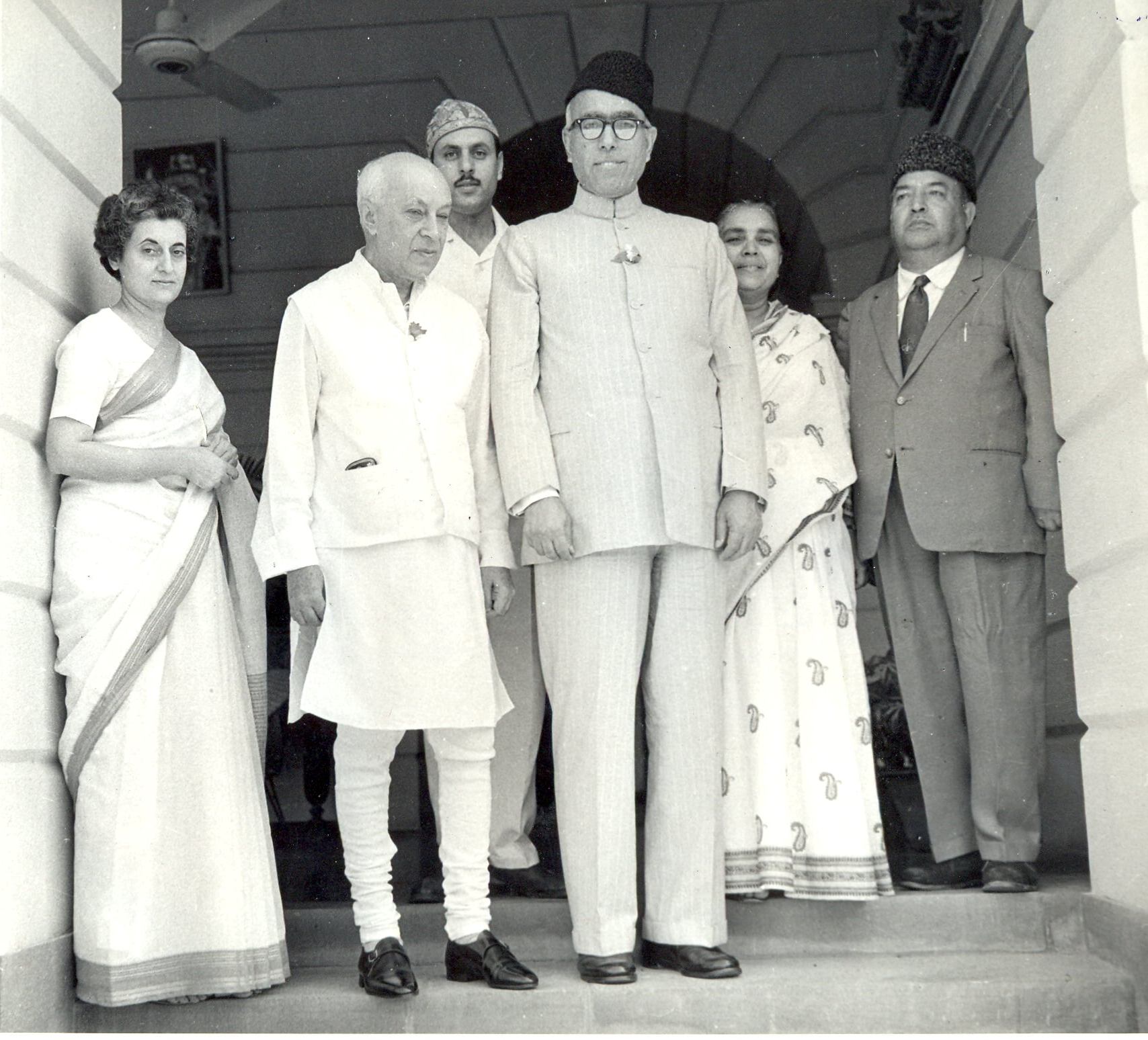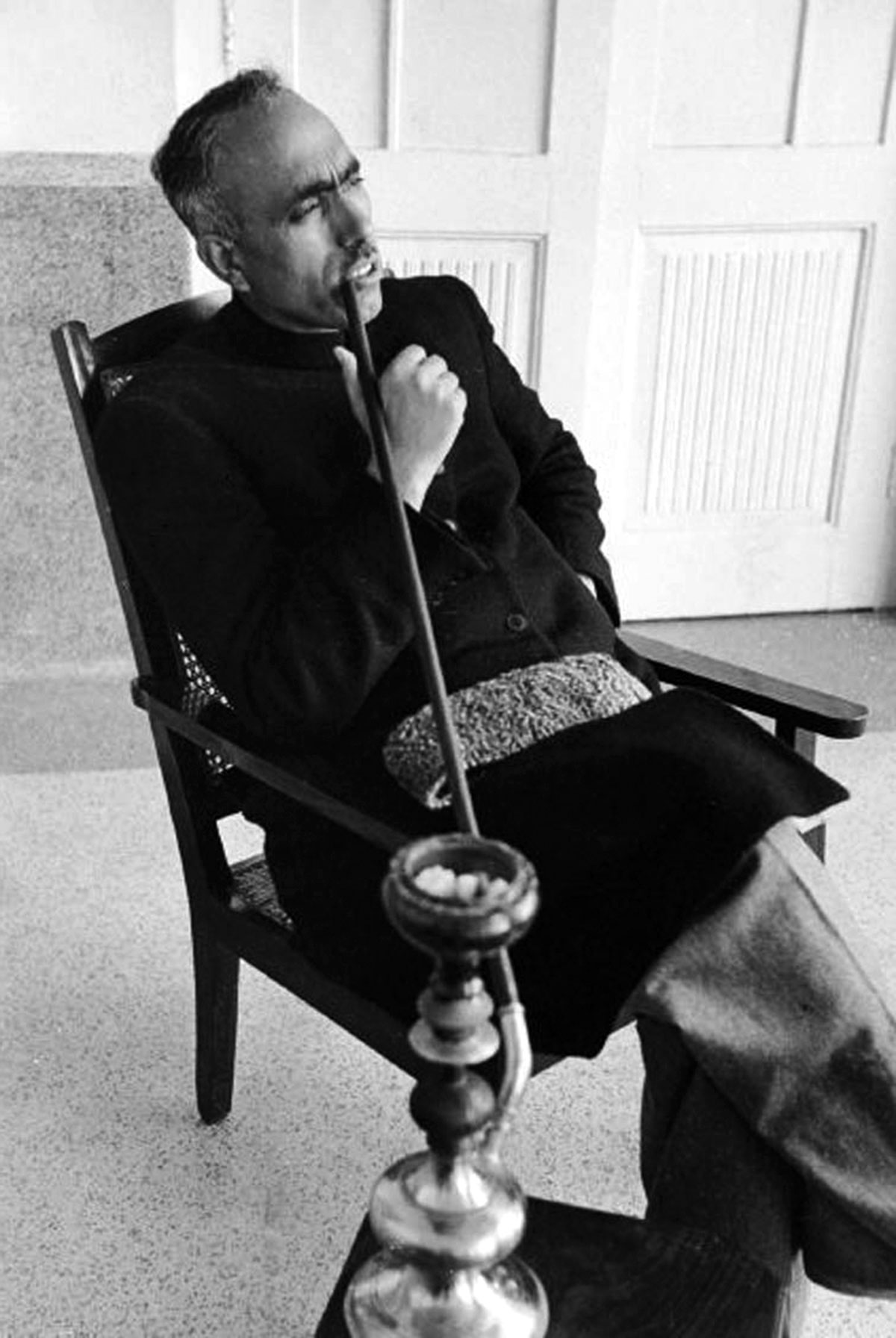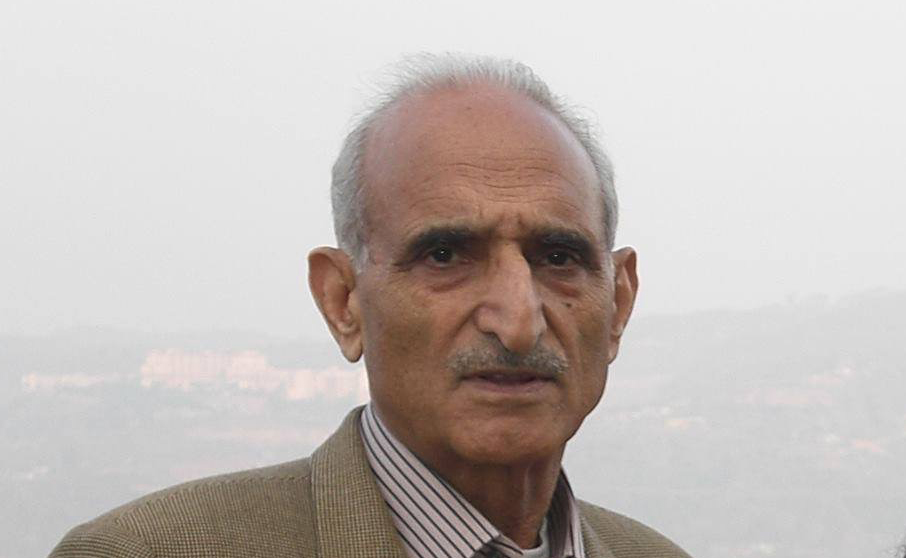by Mohammad Sayeed Malik
Even over half a century later question remains unanswered as to why had the Kashmir leader courted trouble by meeting Zhou Enlai despite its too obvious adverse political implications back home.

For the first time, the so-called ‘China factor’ figured fiercely in India’s internal Kashmir politics, 56 years ago, on May 8, 1965, when Sheikh Mohammad Abdullah and Mirza Afzal Beg were detained at Delhi’s Palam airport, under the Defence of India Rules (DIR), on their return from an overseas visit during which they had an exclusive meeting with the then Chinese premier Zhou Enlai in Algeria.
Across-the-board political reaction to this ‘provocative’ get-together, on foreign soil, within less than three years of Chinese aggression on India in 1962, was sharp and unforgiving.
Besides, a series of battles between Indian and Pakistani forces in the Rann of Kutch earlier that year had created a tense atmosphere, preceding the second full-blown Indo-Pak war, in August-September, 1965. This backdrop added to the decibel level of background political noise.
Controversial Trip
Sheikh Abdullah’s trip was dogged by controversy right from the start. After the passports were issued to them, it was revealed that the Sheikh, in his passport application had described his nationality not as an Indian but as a ‘Kashmiri Muslim’. Apparently, no one either noticed it or objected and the travel documents were issued to all four applicants.

The declared purpose of the visit was ‘performing Hajj’ in Saudi Arabia. Sheikh’s wife, Begum Abdullah and two personal assistants were also in the group. They had also obtained a visit visa for Egypt, Algeria and some European countries.
Even over half a century later question remains unanswered as to why had the Kashmir leader courted trouble by meeting Zhou Enlai despite its too obvious adverse political implications back home. India was still seething with anger over the unprovoked 1962 aggression in the Northeast and on the western front, Pakistan was engaged in the menacing build-up and surreptitious activity along and across the ceasefire line in Kashmir.
Two Versions
There are two different versions: Sheikh in his autobiography, Aatish e Chinar, would have us believe that it was a ‘chance meeting’. He was on a visit to Algeria as an official guest when the Chinese premier also ‘happened to arrive suddenly’. Former J&K chief minister Syed Mir Qasim, in his autobiography, Dastan e Hayat (my life story) says the latter was there to attend some Afro-Asian conference; obviously a scheduled event.
Sheikh and Beg first met Zhou Enlai at a reception given to him by Algerian president Ahmed Ben Bella to which the two visiting Kashmiri leaders were invited by their Algerian host. After a formal introduction, the Chinese premier suggested a separate meeting with the duo, which was held probably the following day and got worldwide publicity. Sheikh’s account confirms they discussed Kashmir (‘in the context of Pakistan’s transfer of some territory to China in Ladakh). Zhou En Lai invited Sheikh to visit China.
Sheikh claims he conveyed a gist of their meeting to the Indian envoy.
Anger In Delhi
But an angry Government of India ordered the Sheikh and his party that they should return home immediately after performing Hajj in Saudi Arabia as otherwise their passports would be cancelled and their return home barred.
According to the Sheikh, he found that the attitude and mood of Indian diplomats, who till then had been courteous and warm to him, had suddenly stiffened and they started shunning him. They wouldn’t respond to his calls.

Reports from India suggested his imminent arrest on his return. He weighed the option of defying the Government of India order and taking refuge in some other country from where he could remotely run his politics back home.
Mir Qasim’s account contains an interesting piece of added information in his autobiography, Dastan e Hayat that does not square up with the Sheikh’s version on this particular point.
Meeting Ali Miyan
It goes like this: ‘Sheikh Saheb was in two minds as he got conflicting advice. In his autobiography, Karavan e Hayat, Syed Abul Hasan Ali Nadwi, renowned and highly revered Indian Islamic scholar popularly known as Ali Miyan, says that I was on Hajj pilgrimage. Sheikh met me and sought my opinion. ‘I advised his return home but he appeared to be in two minds. I told him no doubt your arrest on return is certain but then they will have to release you after some time and you can continue your movement in your homeland which is not as easy being in a foreign country. Sheikh urged me to perform Istikhara prayer and advise him.
(Istikhara in Arabic means turning to Allah and praying when one is in two minds). Ali Miyan offered the special prayer and came up with his original advice that the Sheikh ought to return home.’
The Arrest

As the Air India aircraft carrying Sheikh and his party landed at Palam it was parked at an isolated sport tightly guarded by central security forces. After a couple of hours, they were seen getting down under escort. Sheikh and Beg were seated in one car and Begum Abdullah and two others in another car, which was allowed to leave the airport. Miss Mridula Sarabhai had come to receive them.
Before the media got its scent, Sheikh and Beg were put into another aircraft and flown out to Ootacumand resort town in the South. A month or so later they were shifted to Kodai Kanal and detained there. Because of Beg’s ill health, he was flown back to Delhi and detained in a Bungalow at Kotla Lane. A couple of years later, Sheikh was also shifted and detained in an adjacent bungalow. Beg was shifted to Srinagar after some time on health grounds.
(Author is a senior journalist and former editor of Business and Political Observer. This write-up was reproduced from the author’s Facebook wall.)















